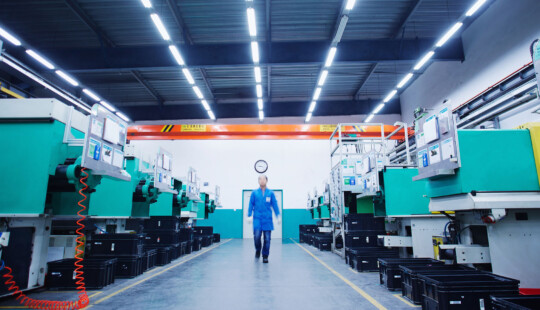One of the most significant questions for this era’s business leaders is how their companies can respond to the pandemic. Juergen Mueller, chief technology officer and member of the Executive Board of SAP SE, believes that technology will play a key role.
“If we learn anything from this crisis, it’s that companies that have digitally transformed are doing fine – or better – than other companies that face severe challenges,” Mueller said.

In a recent interview, he explained how new IT solutions make companies more agile and resilient, as well as help to address new problems that have emerged as a result of COVID-19.
Innovating Quickly to Tackle COVID-19 Challenges
When countries started going into lockdown and international flights were cancelled in March, millions of people were stranded abroad. Germany alone counted approximately a quarter million of its residents left without a way to return. To help bring them home, the German government reached out to SAP.
Mueller recalls the initial conversation: “I got a call from the foreign ministry asking for help to bring stranded Germans back. That was when commercial flights were stopped overnight, almost globally.”
He mobilized his team and within 23 hours provided a secure app that allowed citizens to register their personal information — like address and passport number — so they could be tracked and safely brought home.
To Mueller, that demonstrated two critical points. First, SAP employees are nimble and motivated. “I immediately had 16 people raising their hands, available to work through the night — and then more people joined from other time zones,” he shared. Second, it is another example of how SAP applications fulfill the company’s mission to help the world run better and improve people’s lives. Using SAP technology, the team quickly built an application that safely repatriated 240,000 people.
This is just one example of how Mueller’s team, which develops a suite of products contained in the Business Technology Platform, has rallied to respond to the pandemic.
His organization also developed a contact tracing app in collaboration with Deutsche Telekom. The Corona-Warn-App was created in 50 days using open source code and made available on GitHub. The app has been downloaded more than 19 million times. And at the request of the European Commission, Deutsche Telekom and SAP are helping to ensure interoperability of select contact tracing apps across Europe.
SAP has also created an app called “Never Lunch Alone” to support employees in the isolation many people are struggling with during quarantine. It connects co-workers virtually so they can socialize with colleagues during lunch, as if they were eating together in the company cafeteria.
Pandemic Highlights Importance of Digital Transformation
Mueller believes that digital transformation is more important than ever. “This is something COVID-19 has really accelerated,” he said.” Companies realize that projects – like SAP transformation projects — are extremely important.”
SAP’s Business Technology Platform gives companies a path to digitize and become intelligent enterprises. It includes database and data management, analytics, application development and integration, and intelligent technologies like machine learning.
Mueller explains that the Business Technology Platform offers a foundation for SAP applications that manages critical business processes like customer relationship management (CRM), procurement, human resources (HR), production, finance, and supply chain. It integrates those processes, helping ensure they run together smoothly. It also helps to extend SAP applications, provide consolidated insight into SAP and non-SAP data, and increase speed and agility.
Delivery Hero, one of world’s largest food delivery services, uses the Business Technology Platform solutions to manage IT projects and help the company scale. For example, SAP helps the company analyze and monitor cash flow, which has allowed Delivery Hero to automate its capital-approval process so restaurants receive payments more quickly.
“Delivery Hero saw their order volume surge during this pandemic,” Mueller said. “They now get more than 1.5 million orders per day via SAP systems. They could scale this very fast with this solid and agile technology foundation.”
Empathy and Communication Are More Important Than Ever
With the pandemic and other major challenges like the wildfires in California, Mueller shared that his biggest learning is “leading with empathy. That means listening, which is tough if you’re not on site.”
To stay close to employees around the world and find out what they need, remote checks-ins with colleagues were run using Qualtrics surveys. “We learned a lot from that and improving communication was the top point,” he explained. “We do that regularly, and now more than three-quarters of our employees vote positively regarding their wellbeing.”
In addition to more frequent teleconferences, Mueller believes leaders need to make an extra effort to talk to employees. “I regularly videos record and talk spontaneously about what is top of mind for me, how do I feel. And I get a lot of positive feedback.”
Mueller has been impressed by empathy he sees among teammates: “I’m extremely proud that our employees really put in the extra mile, go the extra effort, and stand in for each other. There’s a lot of camaraderie and teamwork.”



